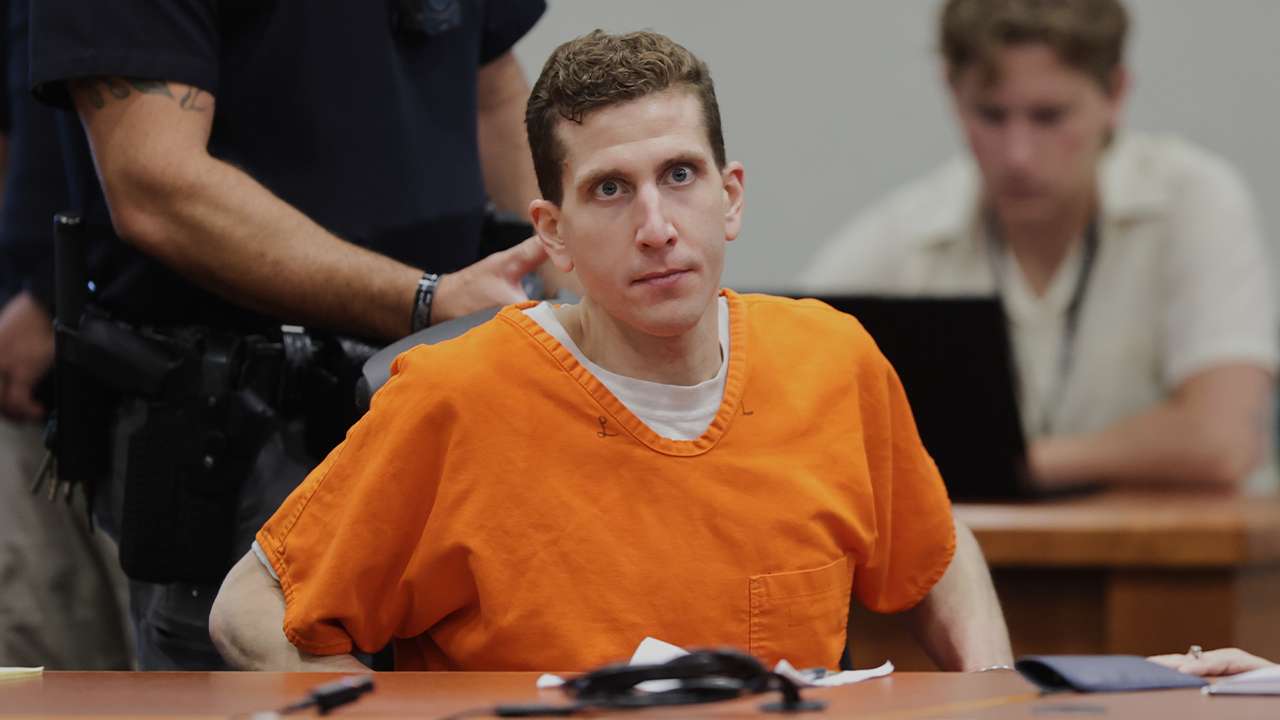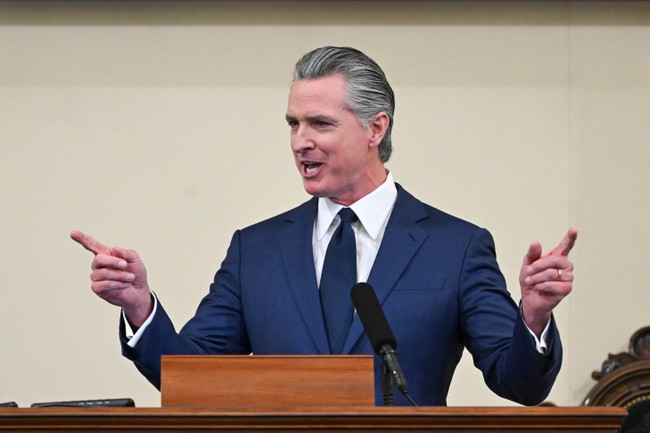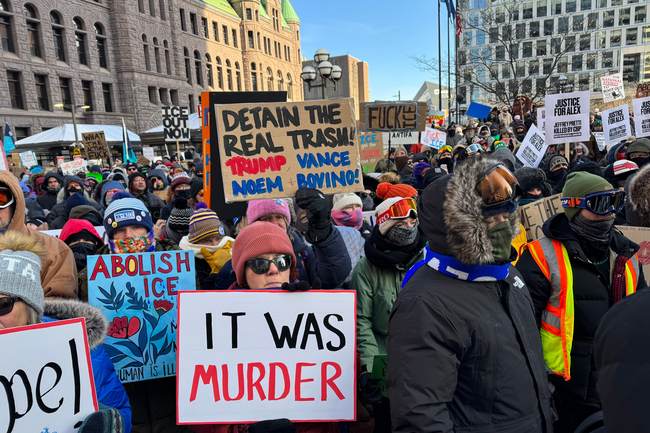Speaker Mike Johnson pushed back sharply Wednesday against ABC News host George Stephanopoulos during a televised exchange, rejecting the network host’s characterization of the Democratic proposal as a means to prevent Americans from losing health coverage and instead blaming Democratic leaders for the government shutdown.
The confrontation took place amid the funding standoff that led to a government lapse at midnight. Stephanopoulos framed the Democratic offer as protecting millions from losing health insurance or Medicaid coverage and preventing higher premiums.
Johnson rejected that description and outlined his view of what occurred in the Senate vote.
BC’s George Stephanopoulos: “The Democratic proposal is designed to prevent millions of Americans from losing their health insurance, losing Medicaid coverage, or paying higher healthcare premiums. Why are you against that?”
Speaker Johnson: “That’s an absurd statement what you said there. Let’s be clear about what happened last night, George.”
Stephanopoulos: “It’s a factual statement.”
Johnson: “No, George, let me tell you what happened last night and everyone can review the facts for themselves. Forty-four Senate Democrats voted to reject a clean nonpartisan resolution to keep the United States government open. Democrats side instead they wanted to give healthcare to the illegal aliens instead of keeping critical services provided for American citizens. That’s what happened plain and simple. Every Democrat in the House except one voted against the clean continue resolution. It was nonpartisan in nature. There were no policy riders on it that Republicans favored. It’s exactly what Chuck Schumer and other Democrats voted for in March, but they changed their tune. They changed their tune because Chuck Schumer’s having political problems right now. That’s just a simple fact and everybody knows it. He’s trying to outrun the far-left portion of his base, so he’s decided to inflict pain on the American people.”
This Could Be the Most Important Video Gun Owners Watch All Year
Johnson framed the vote as a choice by Democratic leaders to attach long-term policy priorities to a short-term funding measure, rather than accepting a nonpartisan continuing resolution to keep the government operating.
He accused Senate Democrats of shifting positions and of seeking to tie funding to expanded healthcare benefits for noncitizens, an assertion Johnson repeated as central to his criticism of Democratic strategy.
The exchange highlighted growing partisan tensions over the substance of the negotiations and the political dynamics within the Democratic caucus. Johnson characterized the Senate vote as a reversal of previous positions and depicted the Democratic leadership’s stance as driven by internal pressure.
He also stressed the House GOP’s insistence on passing clean funding measures without policy riders as the path to reopening the government.
Stephanopoulos pressed on the humanitarian framing advanced by Democrats, arguing the proposal sought to avert coverage losses for Americans and protect vulnerable people from increased costs.
Johnson rejected that premise and returned to his core complaint: Democrats had rejected a clean, nonpartisan resolution in favor of pursuing additional policy goals.
This right here — discussing the government shutdown — is why the right hates the media. It’s loaded questions like this from partisans posing as journalists.
ABC’s George Stephanopoulos: “The Democratic proposal is designed to prevent millions of Americans from losing their… pic.twitter.com/aZM1cUuQKj
— Curtis Houck (@CurtisHouck) October 1, 2025
Outside the television exchange, the broader political fight continued on Capitol Hill, with both parties pointing to the other as responsible for the impasse.
Republicans said their priority is to reopen the government quickly through a clean continuing resolution; Democrats said certain health-related provisions are necessary components of any agreement.
The dispute came as public attention focused on the consequences of the shutdown for federal employees and programs.
Congressional staff and federal agencies face immediate operational questions, and lawmakers on both sides warned of the practical impact if the stalemate continued.
Speaker Johnson’s remarks echoed messages he has delivered in recent days on the House floor and in media appearances, where he has repeatedly emphasized the need to prioritize government funding separate from long-term policy negotiations.
Democrats, for their part, have argued their proposals address ongoing policy needs and protect people reliant on federal health programs.
Johnson left the interview asserting that the facts of the vote are clear and that Democratic leaders chose policy demands over keeping federal operations funded
Read the full article here


![Speaker Johnson Shreds Stephanopoulos Over Shutdown Spin on ABC News [WATCH] Speaker Johnson Shreds Stephanopoulos Over Shutdown Spin on ABC News [WATCH]](https://www.lifezette.com/wp-content/uploads/2025/10/2025.10.02-02.14-lifezette-68de88c35b556.jpg)




![While Celebs Rage About ICE, Jelly Roll Talks About Jesus Christ and Salvation [WATCH] While Celebs Rage About ICE, Jelly Roll Talks About Jesus Christ and Salvation [WATCH]](https://www.boredtrashpanda.com/wp-content/uploads/2026/02/2026.02.02-12.13-boredtrashpanda-698094ed08672.jpg)




